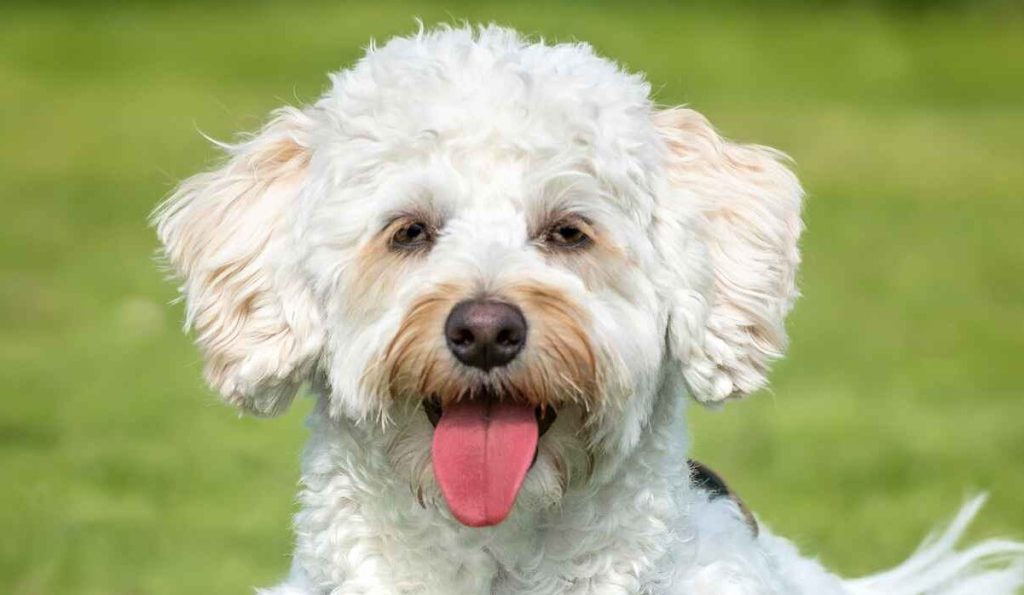The Poochon is a small-sized, spunky cross between the Toy Poodle and Bichon Frise dog breeds. Poochons go by several names, including the Bichpoo, Bichon Poo, and Bichon Poodle. Despite their unfortunate status as a designer breed, you can find these mixed-breed dogs in shelters and breed-specific rescues, so remember to adopt! Don’t shop!





